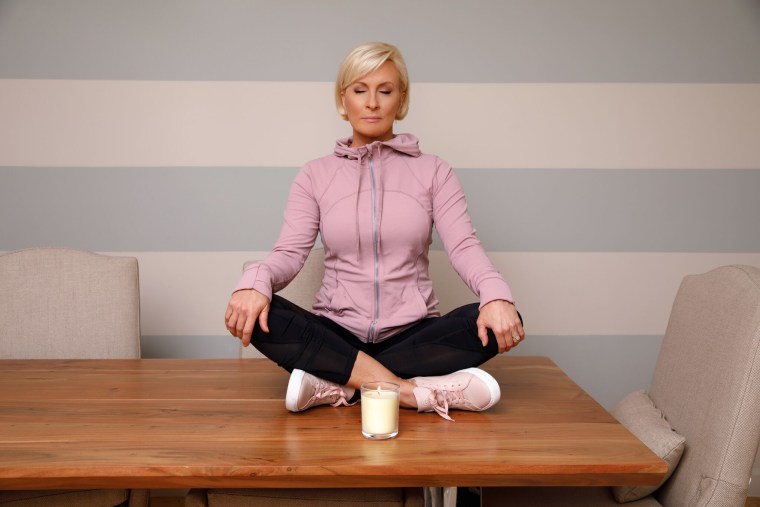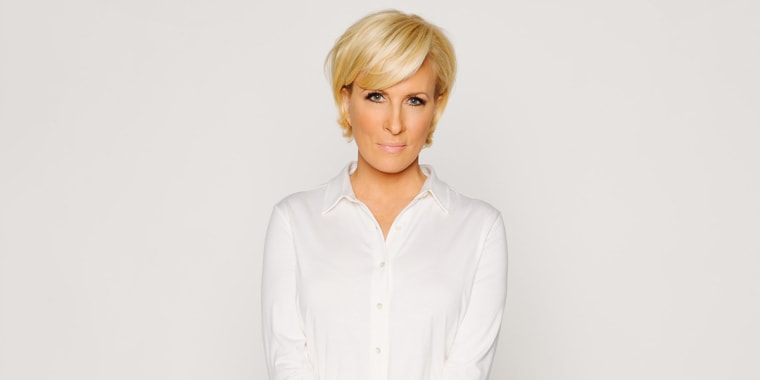Lady Gaga recently took a big risk when she bravely opened up to Oprah Winfrey — and the world — about her mental health struggles, and how Dialectical Behavior Therapy helped get her back on track.
Today, I am taking a risk too, and sharing how the mindfulness-based therapy saved me as well — from my 20-year addiction to sleep medication.
I’m not talking about Tylenol P.M., melatonin, or a glass of wine to take the edge off. I’m talking about prescription narcotics to help me get enough sleep every night to get through very early wake-up calls so I could sharply and alertly deliver and analyze the news.
It started with my graveyard shift at CBS News when I was 30 years old. Besides having two babies under the age of two, my shift was brutal. After a one-hour commute, I went to work at 9 p.m. and returned home at 5 a.m.
Upon my return home, I forced myself to sleep whenever I had childcare. In the early days, my doctor prescribed me Lorazepam and Ambien. I always felt unhealthy when I would wake up from this forced sleep and never felt normal physically. An endless exhaustion always seemed to define my waking hours. And when I finally had time on the weekends to catch up on sleep, I couldn’t.
The sleep deprivation affected everything. My ability to connect and enjoy life was always strained.
I felt the medicine was my only option. And after a few years, I couldn’t sleep without it. Even on a week-long vacation when I finally had the luxury to sleep eight hours a night, I couldn’t without the meds.
As my career changed, my work hours and sleep cycles only became more erratic, and by the time I started “Morning Joe” 13 years ago, there I was again getting up at 3:30 a.m. and trying to be in bed by 7 p.m.
But book events, my children’s track meets, waiting up on the weekends for my teenagers to come, travel and road shows always seemed to get in the way of a normal sleep cycle. I just kept taking the Lorazepam — sometimes up to 3 mg a night, which was a lot for me.
RELATED: Mika: How I went from mindfulness skeptic to believer
These medications, of course, have tremendous positive effects for a lot of people, and they did get me the sleep I needed to survive. But I also felt easily aggravated, my chest would get tight and I got mind-numbing headaches without the pills. I hated how that made me feel.
I desperately wanted to cut down on these medications. I spoke to my doctor about this a lot. But his main concern was that I got enough rest given all my responsibilities.
There was also an irony in that at my Know Your Value events, my struggle with sleep medication often came up during conversations on stage. Talking about our vulnerabilities and overcoming them together, after all, is a cornerstone of the Know Your Value message. But after those events, I always felt bit empty inside, because I never offered a solution to my own problem. I didn’t have an answer. I was still struggling.
About two years ago, I was introduced to Dialectical Behavior Therapy. The concept of DBT is based on radical acceptance and change. It leads us to accept our realities, especially the painful ones. From there, you learn what parts of those realities you can change (if you want to) and just how to do it.

I’ve written on KnowYourValue.com about how DBT helped me wean myself off an addiction to sugar. It’s also helped me cut back on sleep medication. Overall, the therapy has lowered my reactivity, strengthened my relationships with my family and improved my relationship with food.
RELATED: Mika: My lifelong struggle with sugar
At first, I never really considered that DBT would help with my sleep, but several months in, I noticed my life changing.
I noticed mindfulness having an impact on my approach to just about everything. My eating, for example, wasn’t obsessive. The usual repetitive thoughts about refraining from the ice cream in my refrigerator or the icing on the cake sitting in the kitchen counter, would just fly away.
I noticed a “settling in” of my spirit. I was still taking the meds, but was sleeping better. Exercising became enjoyable, rather than feeling like a chore. In fact, I’m running up to eight miles a day.
I also finally felt ready to try again.
About nine months ago, I started breaking off a piece of each pill. Sometimes, I would bite the smallest portion off it. I didn’t judge myself on the nights that I needed all three pills.
When I felt the onset of even the slightest withdrawal symptoms, I pulled back on cutting down. If a headache came on, I would take a half right away, even if it was during the day. I discussed every step of this with my DBT physician, Dr. Gillian Galen, and my family doctor, Brooke Nevins, and we gamed it out. I worked closely with my doctors on the skills to stay with it.
By the way, anyone attempting to adjust medication should always do so with the guidance of their doctor.
Over time, we tried different approaches to withdrawal, managing some symptoms with mindfulness skills, and holding onto my long-term goal of decreasing the dosage. But I never felt bad if I had to break my streak and take what I needed to get enough rest.
I accepted setbacks as not only OK, but part of the process. I would just get right back on the horse the next day, something I was unable to do in the past.
Months later, I was down to two pills. Sometimes, I needed two-and-a-half, but I wouldn’t judge myself. Six months in, I found myself down to one pill and started breaking off those too.
At this moment, I am under less than a half a pill…It’s a negligible amount at this point.
I’m not at the finish line yet, but I never thought I would be at this point without a lot of pain and suffering.
I assumed it would hurt, and that I deserved it. I assumed I would pay for my weakness and addiction. It was that judgement and attitude toward myself that caused me more stress and suffering. This process has been stress-free and with hardly any real pain.
That is an important part of why DBT is such a different approach to addiction. It’s not about creating more suffering. It’s not about judgement. In fact, quite the opposite. The therapy operates on taking a mindful approach to each day, each challenge, each moment. Nothing hokey, but more of a serious rewiring of the brain. A settling of the mind so that a healthy approach to relationships (to anyone or anything) can emerge.
DBT has given me a pain-free, judgment-free mental space to get things done for myself, including slowly weaning off a decades-long addiction to prescription narcotics.
It has changed my life.
